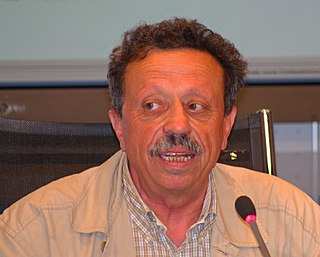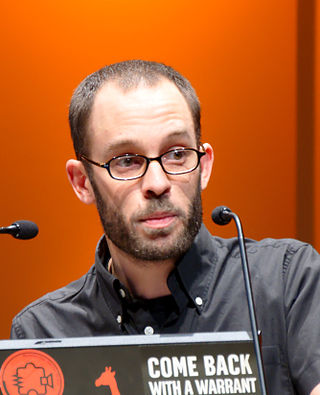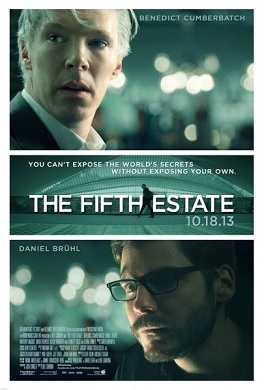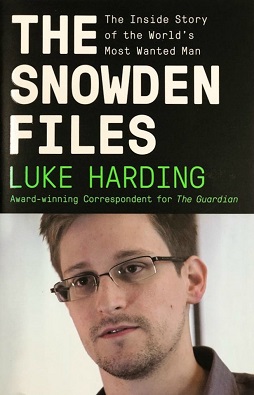Cryptome is an online library and 501(c)(3) private foundation created in 1996 by John Young and Deborah Natsios and closed in 2023. The site collected information about freedom of expression, privacy, cryptography, dual-use technologies, national security, intelligence, and government secrecy.

Israel Shamir, also known by the names Robert David, Vassili Krasevsky, Jöran Jermas and Adam Ermash, is a Swedish writer and journalist, known for his ties to WikiLeaks and for promoting antisemitism and Holocaust denial. His son Johannes Wahlström is a spokesperson for WikiLeaks in Sweden.
David Leigh is a British journalist and writer who was the investigations editor of The Guardian and is the author of Investigative Journalism: a survival guide. He officially retired in April 2013, although Leigh continued his association with the newspaper.

WikiLeaks is a media organisation and publisher of leaked documents. It is a non-profit and is funded by donations and media partnerships. It has published classified documents and other media provided by anonymous sources. It was founded in 2006 by Julian Assange, an Australian editor, publisher, and activist, who is currently challenging extradition to the United States over his work with WikiLeaks. Since September 2018, Kristinn Hrafnsson has served as its editor-in-chief. Its website states that it has released more than ten million documents and associated analyses. WikiLeaks' most recent publication of original documents was in 2019 and its most recent publication was in 2021. From November 2022, numerous documents on the organisation's website became inaccessible. In 2023, Assange said that WikiLeaks is no longer able to publish due to his imprisonment and the effect that US government surveillance and WikiLeaks' funding restrictions were having on potential whistleblowers.

Julian Paul Assange is an Australian editor, publisher and activist who founded WikiLeaks in 2006 in order to commit "acts of journalism". He came to wide international attention in 2010 after WikiLeaks published a series of leaks from US Army intelligence analyst Chelsea Manning: footage of a US airstrike in Baghdad, US military logs from the Afghanistan and Iraq wars, and US diplomatic cables. Assange has won multiple awards for publishing and journalism.
The Afghan War documents leak, also called the Afghan War Diary, is a collection of internal U.S. military logs of the War in Afghanistan, which was published by WikiLeaks on 25 July 2010. The logs consist of over 91,000 Afghan War documents, covering the period between January 2004 and December 2009. Most of the documents are classified secret. As of 28 July 2010, only 75,000 of the documents have been released to the public, a move which WikiLeaks says is "part of a harm minimization process demanded by [the] source". Prior to releasing the initial 75,000 documents, WikiLeaks made the logs available to The Guardian, The New York Times and Der Spiegel in its German and English online edition, which published reports in line with an agreement made earlier the same day, 25 July 2010.
The United States diplomatic cables leak, widely known as Cablegate, began on Sunday, 28 November 2010 when WikiLeaks began releasing classified cables that had been sent to the U.S. State Department by 274 of its consulates, embassies, and diplomatic missions around the world. Dated between December 1966 and February 2010, the cables contain diplomatic analysis from world leaders, and the diplomats' assessment of host countries and their officials.
WikiLeaks began publishing the United States diplomatic cables leak on 28 November 2010. The documents included classified cables that had been sent to the U.S. State Department by its consulates, embassies, and diplomatic missions around the world. The cables were dated between December 1966 and February 2010, and contained assessments of host countries and their officials. The publication of the cables produced varying responses around the world.

Daniel Domscheit-Berg, previously known under the pseudonym Daniel Schmitt, is a German technology activist. He is best known as the former spokesperson for WikiLeaks and the author of Inside WikiLeaks: My Time with Julian Assange at the World's Most Dangerous Website (2011).

Luke Daniel Harding is a British journalist who is a foreign correspondent for The Guardian. He is known for his coverage of Russia under Vladimir Putin, WikiLeaks and Edward Snowden.
WikiLeaks, a whistleblowing website founded by Julian Assange, has received praise as well as criticism from the public, hacktivists, journalist organisations and government officials. The organisation has revealed human rights abuses and was the target of an alleged "cyber war". Allegations have been made that Wikileaks worked with or was exploited by the Russian government and acted in a partisan manner during the 2016 U.S. presidential election.

Assange v Swedish Prosecution Authority were the set of legal proceedings in the United Kingdom concerning the requested extradition of Julian Assange to Sweden for a "preliminary investigation" into accusations of sexual offences allegedly made in August 2010. Assange left Sweden for the UK in 27 September 2010 and was arrested in his absence the same day. He was suspected of rape of a lesser degree, unlawful coercion and multiple cases of sexual molestation. In June 2012, Assange breached bail and sought refuge at Ecuador's Embassy in London and was granted asylum.
WikiLeaks began publishing emails leaked from strategic intelligence company Stratfor on 27 February 2012 under the title Global Intelligence Files. By July 2014, WikiLeaks had published 5,543,061 Stratfor emails. Wikileaks partnered with more than 25 world media organisations, including Rolling Stone, L’Espresso and The Hindu to analyse the documents.

The Fifth Estate is a 2013 biographical thriller film directed by Bill Condon about the news-leaking website WikiLeaks. The film stars Benedict Cumberbatch as its editor-in-chief and founder Julian Assange and Daniel Brühl as its former spokesperson Daniel Domscheit-Berg. Anthony Mackie, David Thewlis, Alicia Vikander, Stanley Tucci, and Laura Linney are featured in supporting roles. The film's screenplay was written by Josh Singer based in-part on Domscheit-Berg's book Inside WikiLeaks: My Time with Julian Assange at the World's Most Dangerous Website (2011), as well as WikiLeaks: Inside Julian Assange's War on Secrecy (2011) by British journalists David Leigh and Luke Harding. The film's name is a reference to people who operate in the manner of journalists outside the normal constraints imposed on the mainstream media.

The WikiLeaks Party was a minor political party in Australia between 2013 and 2015. The party was created in part to support Julian Assange's failed bid for a Senate seat in Australia in the 2013 election. The party won 0.62% of the national vote. At the time Assange was seeking refuge in the Ecuadorian embassy in London. The WikiLeaks Party national council included Assange, Matt Watt, Gail Malone, Assange's biological father John Shipton, Omar Todd and Gerry Georgatos.

The Snowden Files: The Inside Story of the World's Most Wanted Man is a 2014 book by Luke Harding, published by Vintage Books.

Sigurdur Ingi Thordarson, commonly known as Siggi hakkari, is an Icelandic convicted criminal and FBI informant against WikiLeaks. He is known for information leaks, multiple cases of fraud and embezzlement, sexual solicitation of minors and adults. He has multiple convictions for sexual offences.

In 2012, while on bail, Julian Assange was granted political asylum in the Ecuadorian Embassy in London, where he sought to avoid extradition to Sweden, and what his supporters said was the possibility of subsequent extradition to the US. On 11 April 2019, Ecuador revoked his asylum, he was arrested for failing to appear in court, and carried out of the Embassy by members of the London Metropolitan Police. Following his arrest, the US revealed a previously sealed 2018 US indictment in which Assange was charged with conspiracy to commit computer intrusion related to his involvement with Chelsea Manning and WikiLeaks.
Views on Julian Assange have been given by a number of public figures, including journalists, well-known whistleblowers, activists and world leaders. They range from laudatory statements to calls for his execution. Various journalists and free speech advocates have praised Assange for his work and dedication to free speech. Some former colleagues have criticised his work habits, editorial decisions and personality. After the 2016 US Presidential election, there was debate about his motives and his ties to Russia. After Assange's arrest in 2019, journalists and commenters debated whether Assange was a journalist. Assange has won multiple awards for journalism and publishing.











